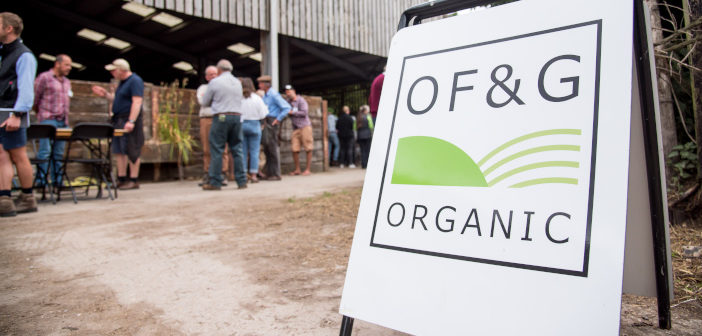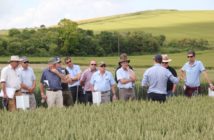The OF&G’s National Organic Combinable Crops (NOCC) conference reconvened for its 15th annual meeting on July 5, at the Cholderton Estate in Wiltshire. Here, attendees heard how market opportunity, and increasing recognition of organic’s benefits, should encourage farms to increase their organic agricultural land areas.
However, currently, the UK only has around 3% land area dedicated to organic production, even though it has the third fastest-growing organic retail market in Europe, said Eric Gall, the deputy director and policy manager of IFOAM Organics Europe. In contrast, 16 countries across Europe have more than 10%.
“The UK has the eighth largest market for organic food sales worldwide, but current low production levels leaves plenty of scope for growth. Organic farming is a ‘climate smart’ solution and the leading model for a transition to more sustainable food systems. It is time to capitalise on this opportunity,” added Mr Gall.
Referencing an independent French Government report, published June 30, 2022, the OF&G’s chief executive Roger Kerr said that organic processes have clear health and environmental benefits. Though policy support for organic farming remains insufficient, Mr Gall followed up.
“[The report] highlights the scientifically proven benefits for health, with less cancers and diabetes in organic consumers, as well as benefits for water quality, less GHG emissions and greater biodiversity,” said Mr Kerr.
He continued: “There is widespread recognition from our nearest neighbours that organic farming can be an effective public policy tool in reaching environmental policy objectives. If we wish to succeed in the transition to more environmentally friendly practices then we need to facilitate higher organic conversion rates.”
“Organic represents a real economic and environmental opportunity for farmers seeking to ‘de risk’ their business and we would recommend Government and farming businesses take a very serious look at this opportunity,” he concluded.




